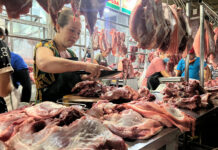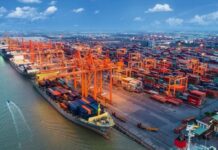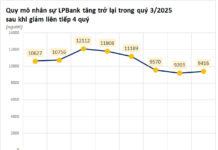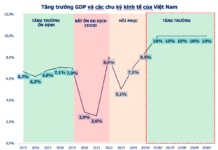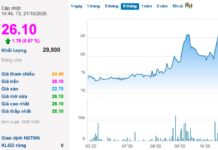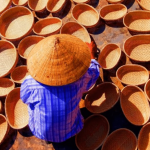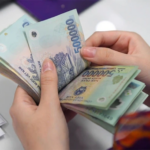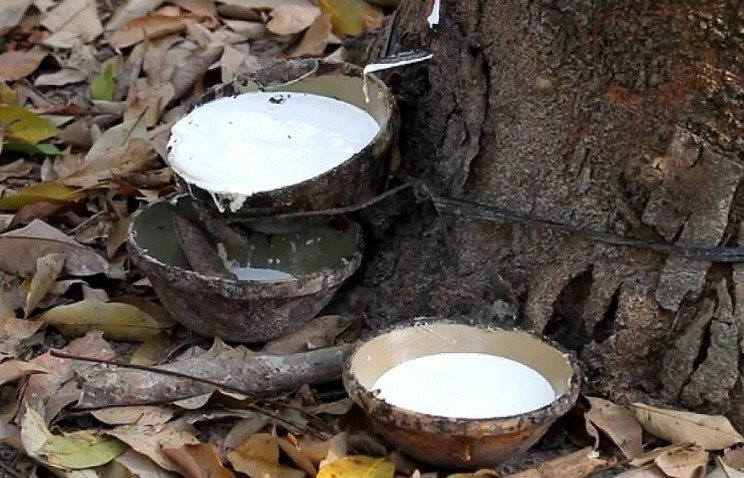
Rubber is one of the key export commodities that brings significant economic value to Vietnam. Specifically, according to statistics from the General Department of Customs, in May 2024, Vietnam’s rubber exports reached 84,460 tons, valued at 135.64 million USD, up 14.8% in volume and up 14.5% in value compared to April 2024. However, compared to May 2023, it decreased by 27.9% in volume and 14.9% in value. This is the second consecutive month that rubber exports have declined year-on-year.
Cumulative in the first five months of 2024, rubber exports reached 572,280 tons, valued at 859.4 million USD, down 2.4% in volume but up 6% in value compared to the same period last year.
The three largest rubber export markets for Vietnam in the first five months were China, India, and South Korea.
Indonesia is actively importing this commodity from Vietnam. Specifically, in May, Vietnam exported 1,947 tons of rubber to Indonesia, equivalent to 3.61 million USD, up 189.7% in volume and up 202.6% in value compared to May 2023.

In the first five months, Vietnam earned 14.5 million USD from exporting over 8,000 tons of rubber to this market, up 83.4% in volume and up 86.9% in value. Indonesia ranked fifth among Vietnam’s largest rubber export markets, accounting for 1.41% in volume and 1.69% in value.
The average export price reached 1,803 USD/ton, up 1.87% over the same period last year.
Indonesia is one of the world’s largest producers and suppliers of natural rubber, with an output that accounts for about 23% of the global supply. In 2023, Indonesia’s natural rubber production reached 2.65 million tons, a decrease of 2.4% compared to 2022. The country’s rubber plantation area in 2023 was 3.55 million hectares, a slight decrease of 0.3% from 2022; the harvested area reached 2.63 million hectares, down 2.4% from the previous year.
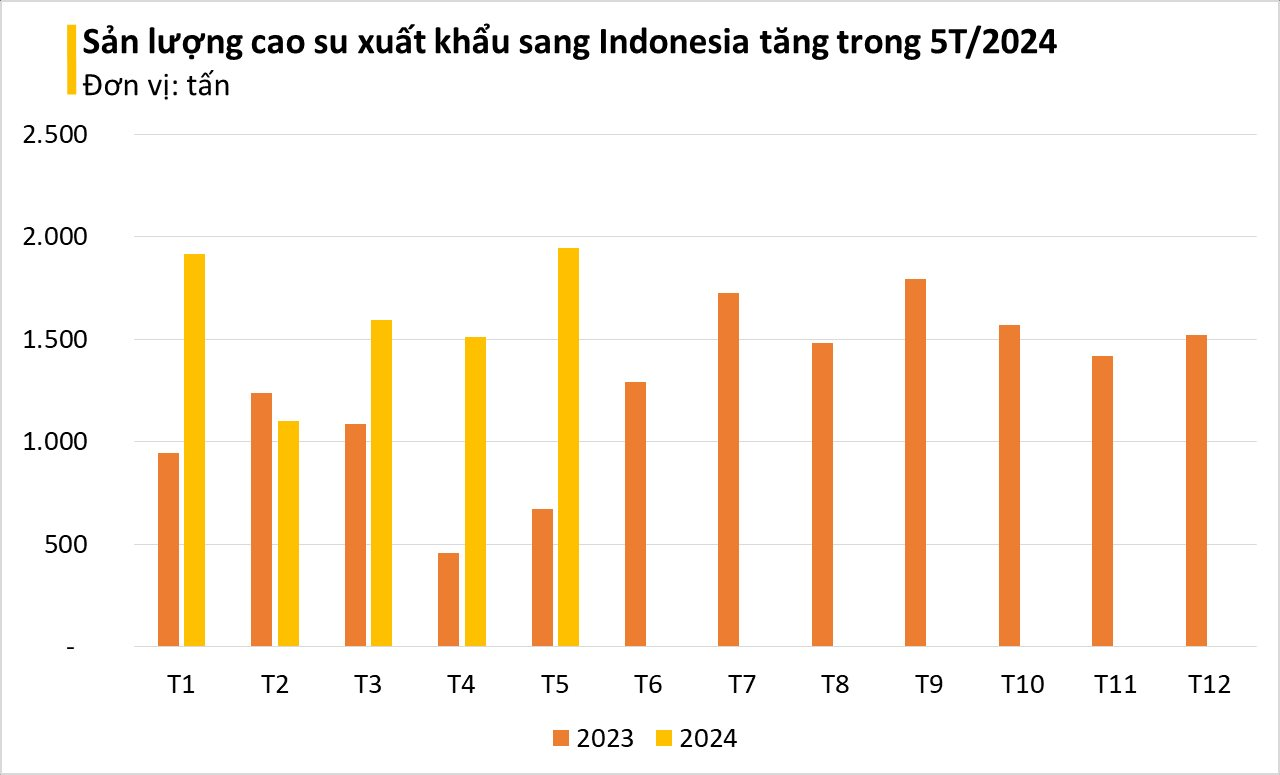
Indonesia used to be a preferred source of natural rubber for many automotive tire companies worldwide, largely due to its cost advantage over other Southeast Asian countries. However, Indonesian natural rubber has lost its cost advantage in recent years, mainly due to low latex yields from rubber plantations for various reasons.
First, the average yield from rubber trees in Indonesia has been significantly affected by the outbreak of Pestalotiopsis fungus in 2017 and its subsequent spread, which has infected nearly 0.4 million hectares of mature rubber trees in the country.
The aging structure of rubber plantations also contributes to low yields. To achieve the desired yield from the plantation, trees must be cut down when they reach the end of their economic life (about 25 years after planting) and replanted with improved clonal varieties. However, poor farmers are often forced to postpone replanting due to high replanting costs, lack of alternative sources of income to survive during the long rehabilitation period, and uncertainty about the long-term prospects of the business.
Additionally, since the beginning of 2024, with weather fluctuations and the early arrival of El Nino, the world’s largest natural rubber suppliers, such as Thailand and Indonesia, have experienced declines, leading to a significant reduction in natural rubber supply.
Indonesia’s production decline directly impacts its export volume. In January 2024, Indonesia exported 137,000 tons of natural and mixed rubber, a 19% decrease compared to January 2023 (including 136,000 tons of natural rubber, down 19%, and 1,000 tons of mixed rubber, down 50% compared to January 2023). Facing supply difficulties, Indonesia had to increase its rubber imports from Vietnam.
The most extensive bribery case ever in Thanh Hoa: Numerous suspects prosecuted for “Giving and Receiving Bribes”
The Provincial Security Investigation Agency (PSIA) of Thanh Hoa province announced on January 31st that it has made the decision to initiate a prosecution against 23 individuals in connection with the offenses of “Accepting bribes” and “Giving bribes” as stipulated in Article 354(3) and Article 364(2) of the Criminal Code.
Mobile World achieves revenue of VND118,000 trillion: TVs, tablets, and phones all decrease by 10% – 50%, while one product grows in both quantity and revenue.
Mobile World Investment Corporation (MWG) has recently announced its 2023 business results. According to the report, the company’s consolidated revenue reached over 118 trillion Vietnamese dong, equivalent to 89% of the revenue in 2022.

